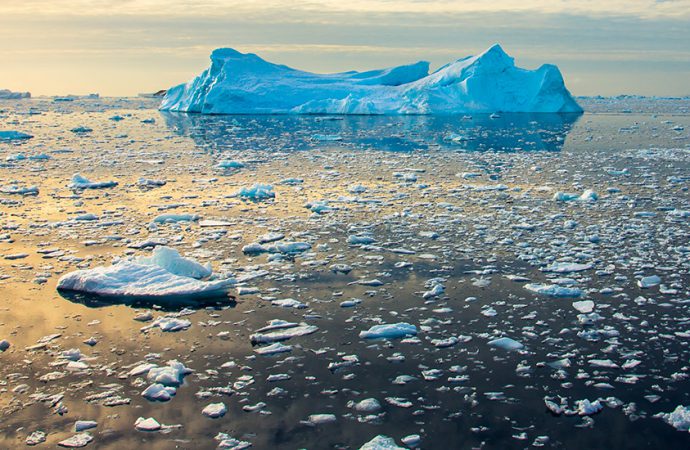Pakistan is one of the most severely affected countries by global warming. There is no doubt that earth’s temperature increases due to natural factors but such change is too minimal to cause any real damage or endanger human life. However, any abnormal increase in temperatures is directly or indirectly linked to human activities. This is
Pakistan is one of the most severely affected countries by global warming. There is no doubt that earth’s temperature increases due to natural factors but such change is too minimal to cause any real damage or endanger human life. However, any abnormal increase in temperatures is directly or indirectly linked to human activities. This is reflected by the fact that in the previous century an increase of 0.75-degree Celsius was observed while in the next century temperatures are likely to increase somewhere between 1 to 6 degrees Celsius. Mainly due to over exploitation of natural resources but in doing so we avert our eyes from the catastrophic impacts it can have which have already started to assert itself in the form of floods and other natural disasters.
Pakistan has less than 1 percent contribution towards global warming yet it is the 8th most climate vulnerable country in the world as rated by the German Watch, whereas, the real transgressors are the developed countries such as the US, China, Russia, Germany and UK. Heavy industrialization of these countries requires burning of fossil fuels for energy as well as to run the transport sector.
This vulnerability mainly stems from Pakistan geographical location that bears the brunt of two weather systems i.e., high temperatures that make it susceptible to conditions like drought and monsoon rains exposing it to floods. Moreover, another risk associated with rising temperatures is the fact that Pakistan has more than 7000 glaciers for which it is also referred to as the “third pole”. Rising temperatures are melting these glaciers at a faster pace. This led to massive flooding in Gilgit Baltistan and Khyber Pakhtunkhwa regions. Even the current flooding that has drowned one third of the country is attributed to the combined effects of monsoon rains and glacial meltdown.
Efforts are being made by the UN to combat the impacts of Climate Change. One such example is the United Nations Framework Convention on Climate Change that aims to “prevent dangerous human interference in the climate system” by focusing on sustainable development, agricultural productivity and ecosystem response. However, the implementing treaty for the UNFCCC is the Kyoto Protocol that covers under its ambit eight greenhouse gases and places common but differentiated responsibilities on countries since, each country has different capacity to deal with Carbon-dioxide emissions. It places the burden on developed countries as they are responsible for the emissions.
Similarly, the UN Climate Summit in Glasgow vowed to fight climate change, where each country pledged to curb its emissions in an attempt to limit global warming to 1.5 degree Celsius. The US and EU made promises to reduce carbon emissions by 50 percent by 2030 while China promised to derive 25 percent of its energy from clean sources like winds, solar or nuclear power. However, environmentalists urge China to set more nearer term targets for itself.
The problem with such pledges is that they are at the behest of the country making them with no authority to hold them accountable. Hence, they can at any point call it off. Chinas relaxed approach to the impending crisis is a manifestation of this approach. Similarly, the US which is the largest emitter of greenhouse gases is not a signatory to the Kayoto protocol. The attitude of the developed world is further highlighted by the war in Ukraine with some countries intensifying coal use to deal with energy crisis while other countries looking for new investments in oil and gas sectors. Scientists are concerned that such highhandedness could lead the world to “irreversible warming”.
Adding to that, most of the military equipment is driven by fossil fuels like tanks, planes, jets etc. On the contrary, NATO members are increasing their military budgets with Germany alone announcing an increase of 100 billion euros. According to Stuart Parkison, a researcher at Scientists for Global Responsibility, this will have an “impact on the total military carbon footprint on top of the massive emissions from the war directly”.
It is unfortunate that due to the negligence and lack of responsibility on the part of a few, the world, and specially developing countries are being pushed into an environmental crisis which once unleashed cannot be reversed. As can be seen, the developing world is left to suffer on all ends, with meager resources and added pressures of debt, floods in Pakistan have caused an economic chaos. The crops have been destroyed adding the burden of imports from abroad. Similarly, infrastructure and roads have been damaged and millions have been displaced. The minister for planning and development has revealed in a statement that it will take Pakistan five years to recover from the implications of these floods.
To combat some of the problems, aid is flowing from developed countries but it is high time the government realizes how important the efficient allocation of these resources is. If we miss out on targeting our problems this time around, then the chances of recovery for Pakistan will be slim since the estimated loss due to floods is considered to be 10 billion dollars. Another largely argued viewpoint is that countries majorly responsible for the problem should pay for the loss or in other cases forgo the public foreign debt of the countries under the impact of climate change. Either way the time has come for developing countries at high risk to come together and negotiate their terms with the first world.
- Russia-Ukraine and Lawfare - October 26, 2022
- Russia – Ukraine War & its Impact on Growing Economies - September 21, 2022
- Global Warming and Pakistan - September 15, 2022






















Leave a Comment
Your email address will not be published. Required fields are marked with *